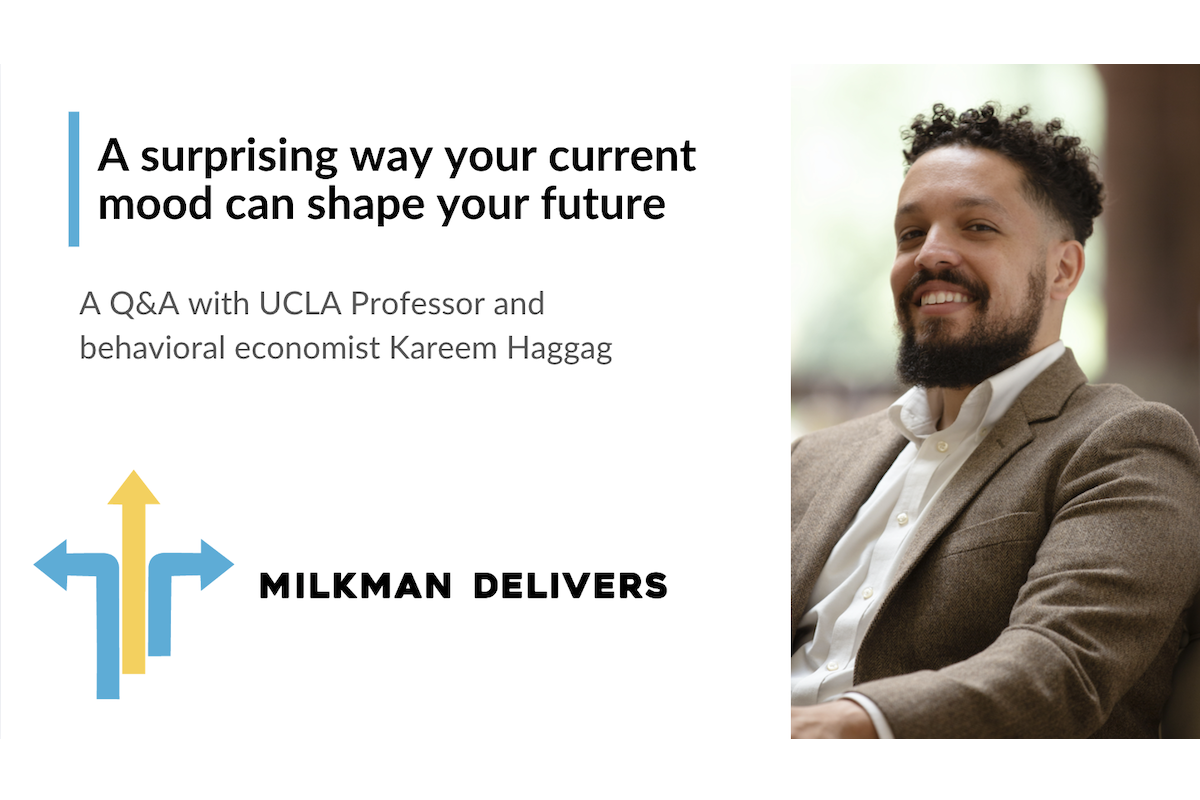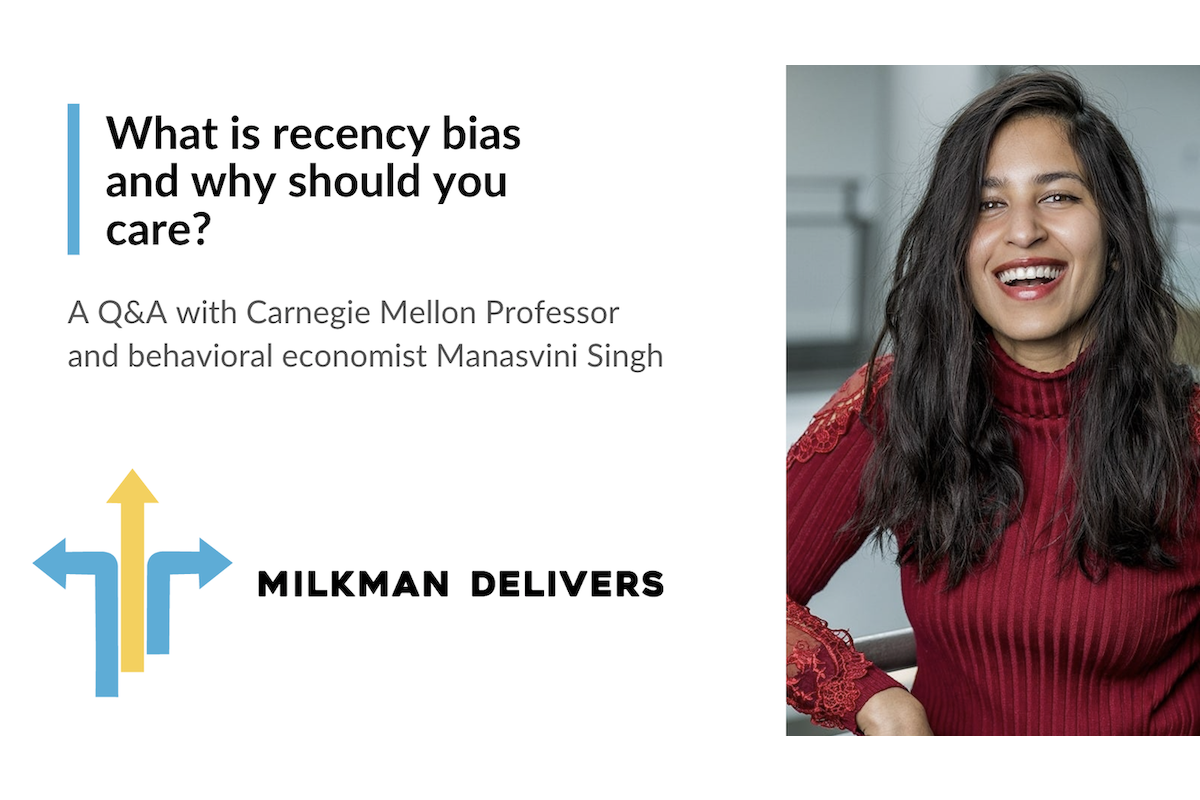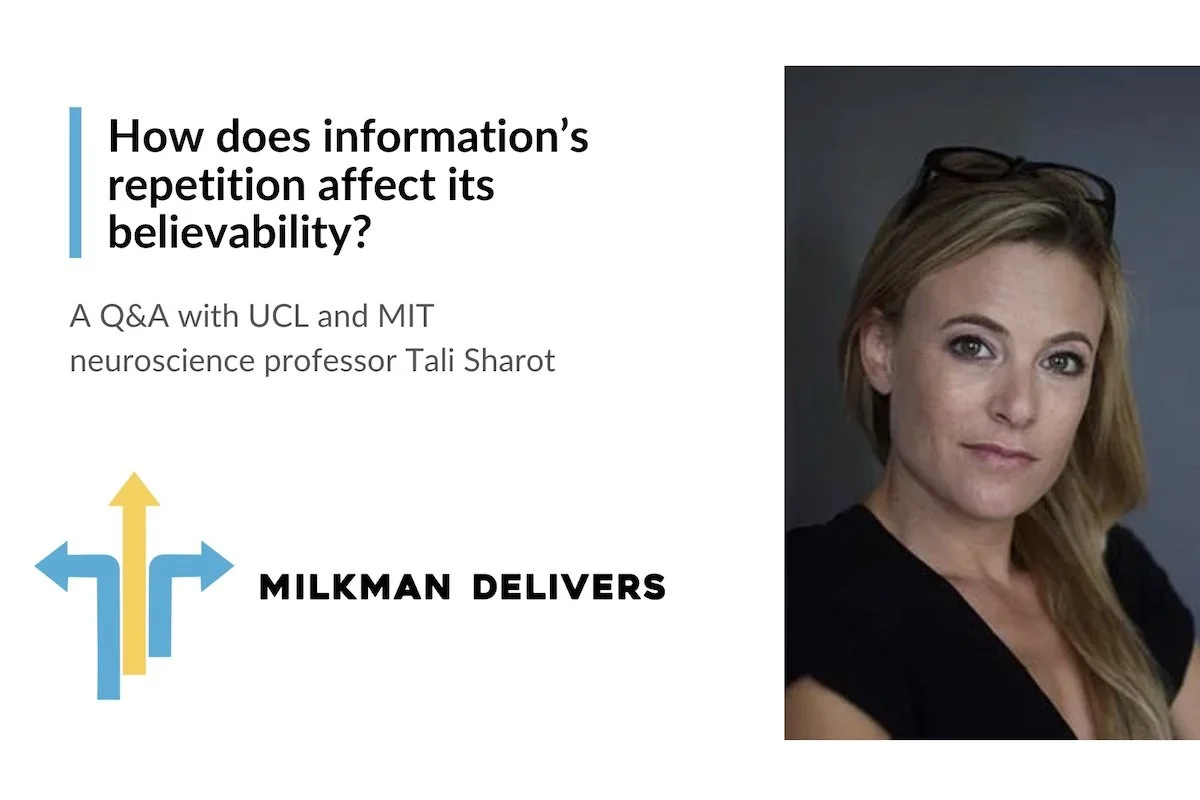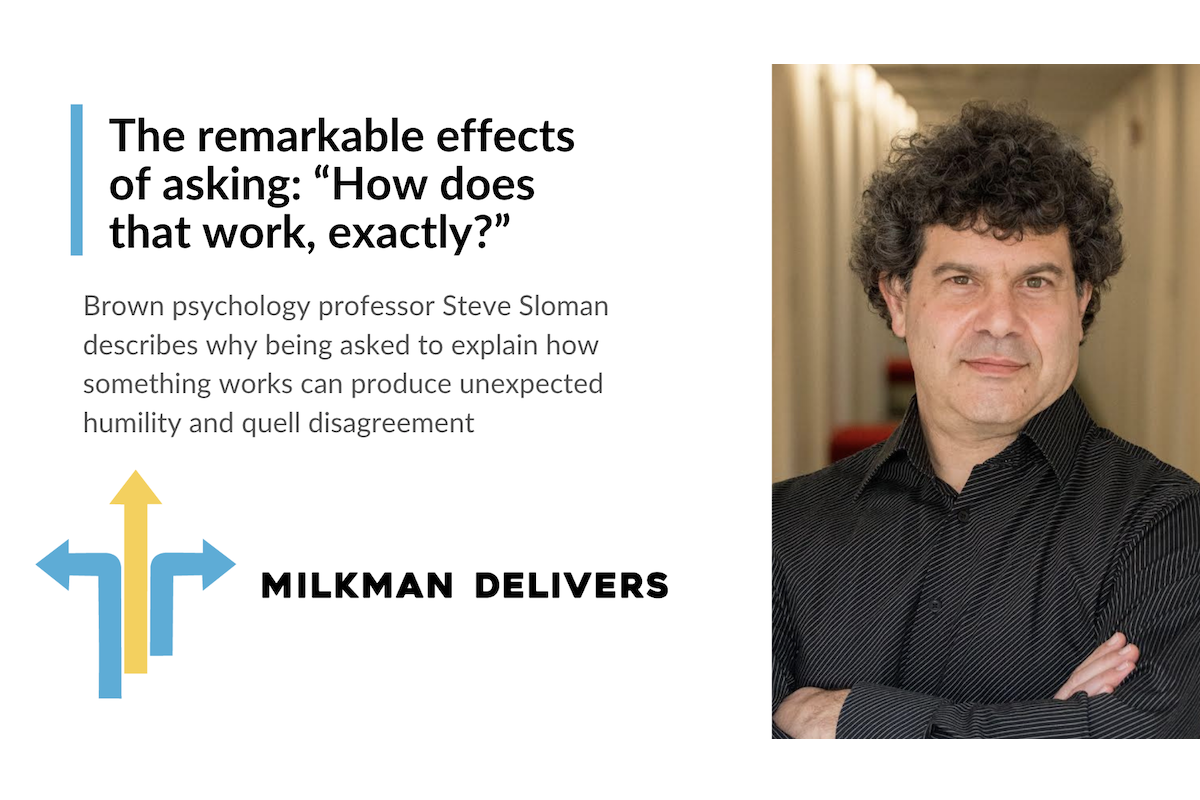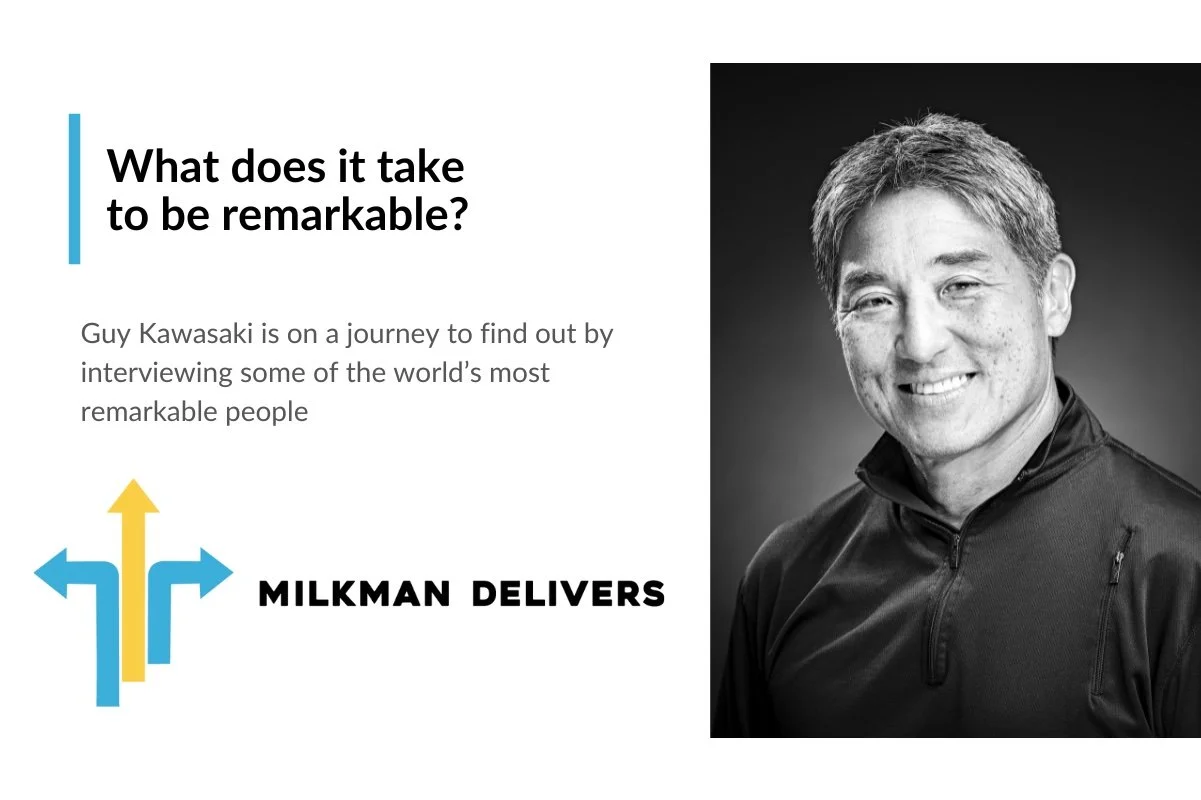March 25, 2025
This month, I’m sharing fascinating research showing that our proclivity for rule- or norm-following isn’t just a function of gender (as I’ve observed on ski trips), but is highly determined by our environment. It varies massively across countries, across companies, and of course, across contexts (consider the differences in adherence to norms at funerals versus Halloween parties).
February 25, 2025
Research shows our emotional states — be they states of elation, disappointment, hunger, or exhaustion — can have big spillover effects. Emotions don’t just affect us in the moment; they can also distort our future judgments in ways we may not realize.
January 28, 2025
Today I want to talk about a bias that can be a real pain in the neck — whether you’re choosing the right goal to tackle or the best restaurant to recommend to a friend. It turns out we have a suboptimal tendency to fixate on what’s top of mind, and one way things get to the top of mind is by being recently encountered.
December 17, 2024
Every December, I share a list of my favorite things from the past year in my newsletter. I hope you’ll enjoy this year’s list! Milkman Delivers will be back with a Q&A diving into a new insight from behavioral science in the New Year. In the meantime, I’m wishing you and yours a fabulous holiday season.
November 26, 2024
UCL and MIT neuroscience professor Tali Sharot discusses a mistake we can make when we’re exposed to the same information repeatedly.
October 29, 2024
With just a week until Election Day and as a resident of a key swing state, I’ve been thinking a lot about how I can help get out the vote. Happily, my fellow behavioral scientists have done some terrific research showing small but effective steps we can all take to encourage our friends and family to head to the polls.
September 24, 2024
What most of us learn when we’re asked “how does that work” is that it’s surprisingly hard to say. And that’s the focus of this week’s interview, but with a twist — it turns out that asking for explanations of how things work can lower the temperature in political debates (a tip that feels timely as we approach a contentious American election).
June 25, 2024
Life is full of repeated decisions. Day after day, we choose what to eat, who to socialize with, where to travel, who to hire, whether and how to exercise and so on. What’s fascinating is how often we consider these choices in isolation — deciding what to eat for lunch as if we won’t make the same decision again tomorrow.
May 28, 2024
It’s the end of another academic year, and as a professor, I usually feel only happiness and excitement in the air as graduates prepare to walk the stage and accept their diplomas with lots of pomp and circumstance. But this year the mood is different. College campuses around the country (mine included) have seen an unusual degree of discord. The noticeable sentiment shift got me thinking about the interview I feature this month, which dives into some of the research on how much the collective mood of a region, country or even the globe can matter in ways that I, at least, find fascinating and a bit counterintuitive — affecting our decisions, our health, and even the stock market. I hope you’ll find it interesting.
April 30, 2024
Since the last edition of this newsletter, the field of behavioral science has suffered a truly monumental loss. On March 27th, emeritus Princeton psychology professor and Nobel Laureate Daniel Kahneman passed away. Danny’s work with Amos Tversky in the 1970s laid the foundations for everything I study and discuss in this newsletter, demonstrating that decision makers are poor intuitive statisticians, which leads us to make many systematic mistakes (like worrying too much about low-risk events that we can imagine vividly, e.g. shark attacks).
March 26, 2024
An unexpected upside of writing How to Change was that my “book tour” introduced me to some really neat people who don’t run in my usual (wonderful but wonky) academic circles. I met a curious group of podcasters, journalists, and organizational leaders with a taste for behavioral science, and one new connection who particularly stood out was a charming surfer, author, podcast host and product evangelist named Guy Kawasaki.
February 27, 2024
Every winter, I have the pleasure of (re)teaching a Wharton MBA course that covers classic psychology research on decision biases and heuristics. I’ve been teaching this material for fifteen years but it still feels fresh and fun because the takeaways are so clear and practical.
January 30, 2024
First and foremost, happy New Year! As long-time subscribers will know, I’m extra busy in January because nearly every media outlet runs a story on why we set New Year’s resolutions and how you can achieve yours, which happens to dovetail with my area of expertise.
December 19, 2023
It’s become a tradition to share a few of my favorite things from the past year in my December newsletter. I hope this year’s list will help you discover some wonderful new reads, listens, and laughs, and I wish you and yours a fantastic holiday season!
November 28, 2023
This fall, after noticing a pronounced drop in the fraction of Philadelphians sporting skinny jeans and an uptick in bootcuts, I’ve begun slowly retiring my (still comfortable and sturdy) skinny jean collection for more “modern” replacements. Please don’t judge my wastefulness too harshly. I’m far from a fashionista, but like most people, I respond to peer pressure, and when trends shift, I don’t want to be the last goofball caught wearing dated styles.
November 17, 2023
I’m excited to share some fun news …
A brand new MasterClass launched yesterday with Jay Shetty, author of Think Like a Monk and host of On Purpose. It focuses on navigating change and features interviews with experts including me (!) and my good friend Maya Shankar, who you may remember from the October edition of this newsletter
October 31, 2023
It has been a tumultuous month (to put it mildly). While the Q&A I’ve chosen to feature this month is unrelated to the upheaval all around us, it’s with Dr. Maya Shankar, who hosts my favorite podcast on coping with unforeseen change. As you’re confronting change, I highly recommend checking out A Slight Change of Plans, which Apple named the best podcast of the year in 2021 for good reason.
September 26, 2023
Today, I’m bringing you a Q&A with Harvard Professor Todd Rogers whose incredible new book WRITING FOR BUSY READERS hit the shelves in early September. Todd is a renaissance man — a renowned academic, successful entrepreneur, and winner of the prestigious Rising Star award from Politics magazine for his efforts to bring behavioral science to Washington. Our Q&A focuses on the power of forgetting and what can be done to remember better. But Todd’s book will help you write better (and more memorable) prose, and that’s a skill we could all use (particularly the author of this newsletter!).
June 27, 2023
In academia, summer is the season for reflection. College campuses go quiet, email traffic slows, and there’s finally room to consider what’s made you proud and what you most regretted in the last two semesters. I briefly entertained the notion of sharing a list of wins and woes from the past academic year in this newsletter. But anticipating I’d soon come to regret that (ahem), I instead decided to devote this issue of Milkman Delivers to a Q&A about the science of regret and the impact it can have on our decisions.
May 30, 2023
This year, I’ve had the great pleasure of reading the Harry Potter books to my seven-year-old son (an activity I highly recommend to all parents). In one of my favorite scenes from the series, Harry cleverly uses behavioral science to help his best friend succeed. On the day of a major sporting event, Harry tricks his teammate and fellow wizard, Ron, into believing that a bit of a valuable and rare luck potion is in his breakfast. Ron’s confidence soars as a result, and his performance on the field is unusually strong. However, we learn that no magic was actually deployed—Harry just relied on sleight of hand to mislead his friend and thereby change his mindset.


